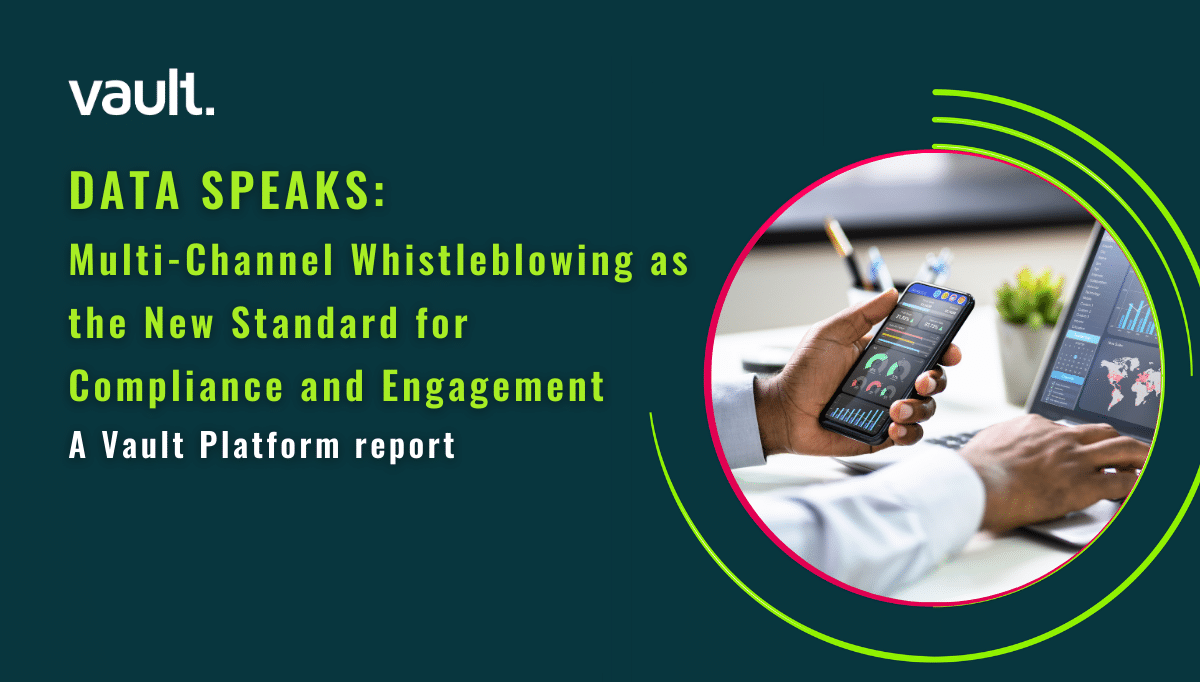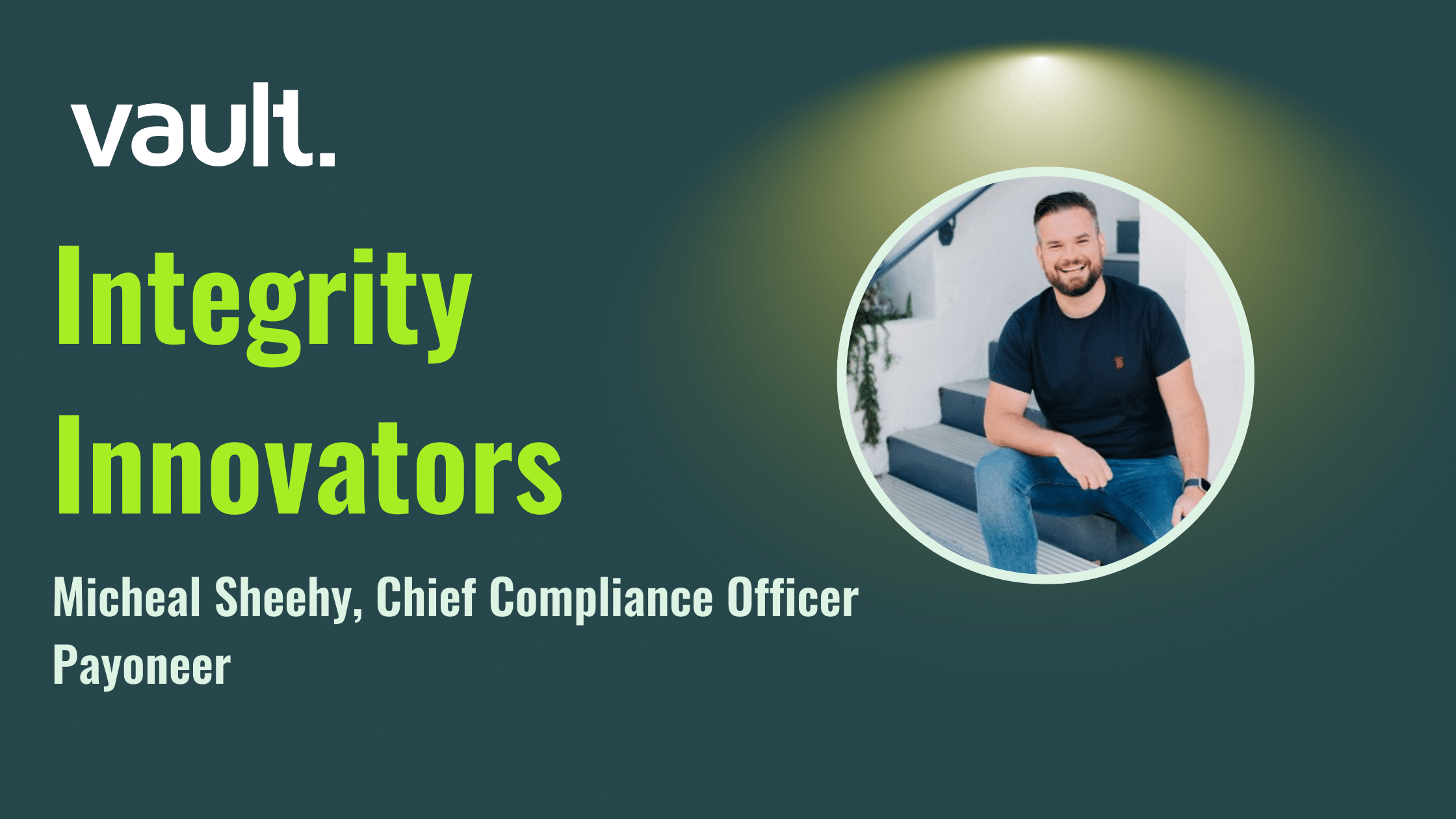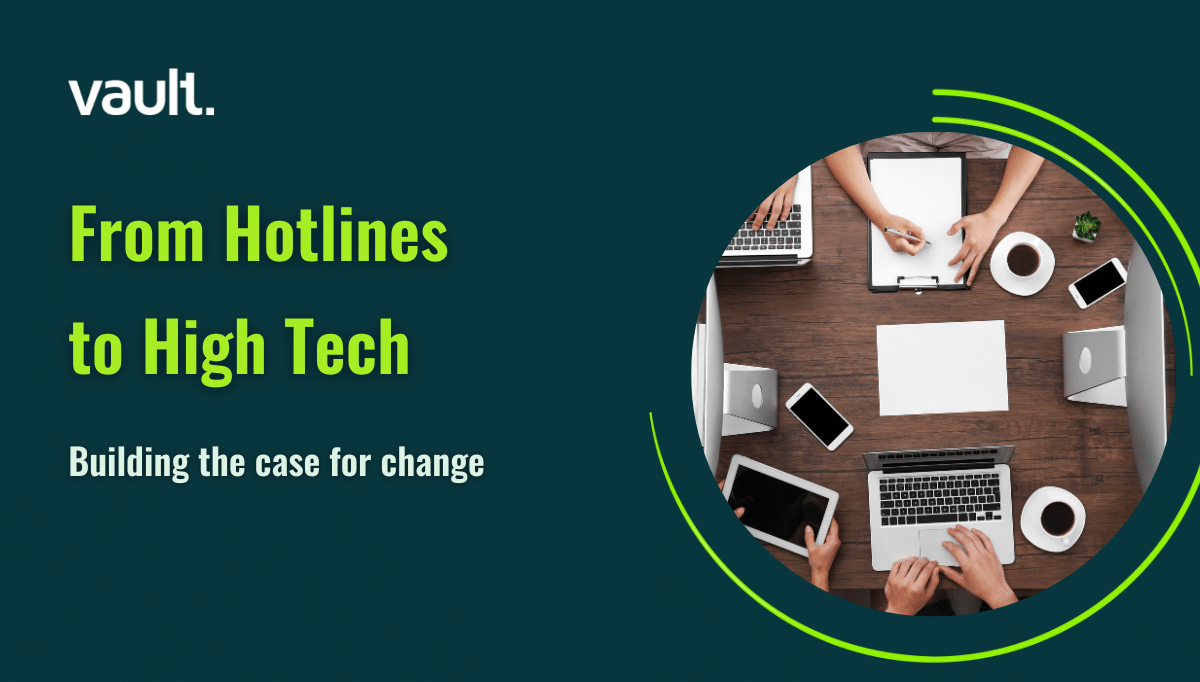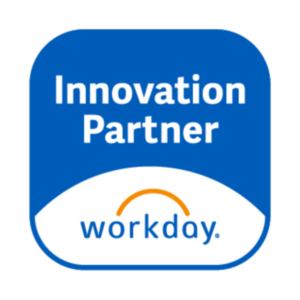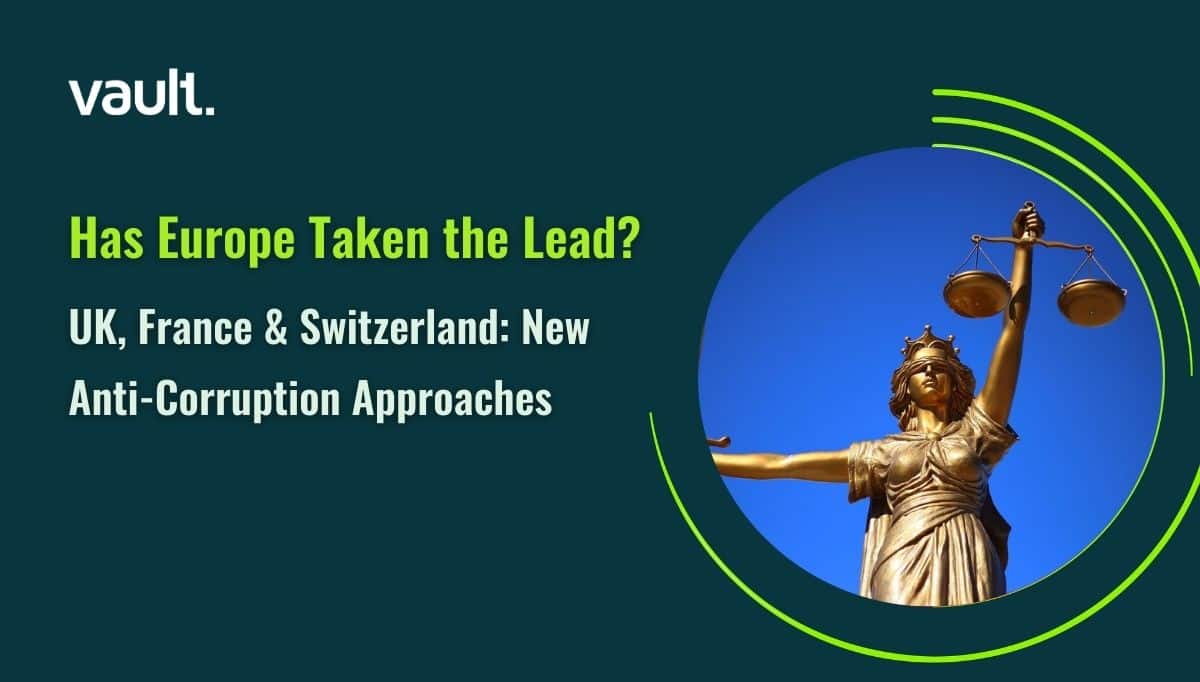
By Neta Meidav – CEO and Founder, Vault Platform
Something big just happened in the fight against corporate misconduct, and it might just reshape how businesses worldwide play by the rules.
On March 20, the UK, France, and Switzerland announced the International Anti-Corruption Prosecutorial Taskforce, setting the stage for a wave of cross-border collaboration like we’ve never seen before. Launched during OECD Integrity Week, this taskforce brings together powerhouse agencies—Britain’s Serious Fraud Office (SFO), France’s Parquet National Financier (PNF), and Switzerland’s Office of the Attorney General (OAG)—to share evidence, pool resources, and speed up investigations.
The U.S. has forged the path for anti-corruption enforcement for nearly five decades with its Foreign Corrupt Practices Act (FCPA), now put on hold under Trump’s administration. However, this dynamic new European alliance indicates that Europe and the UK are catching up and taking the lead in the fight against corruption. Companies that operate internationally are likely to undergo stricter scrutiny, investigations, and a new rulebook for compliance and ethics.
The Bigger Picture: A Culture Shift Toward Transparency
This latest alliance reflects a broader global trend toward transparency in the workplace—one that is not just about bribery or fraud but about building integrity from the inside out. Public demands for accountability are growing. Governments are rolling out new whistleblower protections, awarding financial incentives for employees who reveal corporate misconduct, and stepping up retaliation safeguards.
In the EU, as well as in the UK and Switzerland, regulatory bodies are expected to increase their scrutiny of how companies receive, investigate, and address concerns. We now recognize that effective reporting programs significantly reduce legal liability and reputational risks by addressing issues earlier and decreasing time-to-resolution by 66%. Meanwhile, the Government Expectations & Compliance Landscape suggests that companies that ignore regulatory developments risk facing hefty fines and a decline in stakeholder trust.
Data-Driven Approaches to Enforcement (and Compliance)
One reality of these shifting enforcement norms is that the quality of data drives outcomes. Authorities are sharing tips and detailed evidence gleaned from modern analytics. The ability to verify whistleblower reports through well-documented digital trails is becoming a linchpin in anti-corruption enforcement. Similarly, companies are expected to keep pace with secure, technology-enhanced compliance programs.
Legal, HR, and compliance teams see this as an opportunity to modernize their processes to include multiple reporting channels such as web portals, mobile apps, and AI-driven voice or chat integrations to increase engagement and gather more accurate data. Ultimately, minimizing friction for staff who want to report an incident increases reporting by 30%, providing organizations with the insights needed to act swiftly, preventing misconduct from escalating into full-blown crises or making big headlines in the press.
Seizing the Opportunity: Practical Steps
The days of basic telephone hotlines are numbered. Multifaceted reporting channels, including mobile apps, secure online portals, chatbots, and AI-driven voice solutions, drastically improve data quality. Providing anonymous, accessible channels not only encourages employees to speak up but also yields the kind of detail investigators need to act effectively.
Integrate AI and Automation
Speed up cross-border corruption probes by using case routing, real-time translations, and machine-learning analytics to identify emerging risks. Once the intake process is automated, legal, HR, and compliance teams can focus on strategic initiatives instead of being overwhelmed by day-to-day management. As new jurisdictions join international alliances, ensure compliance training addresses local nuances, such as the EU’s data privacy laws and cultural norms, particularly as taskforces like the UK-France-Switzerland expand globally.
Foster a Culture of Trust
Compliance is not a box to check– it’s a core cultural value that must be reinforced from the top. Encourage senior leaders to champion open dialogue. Emphasize how speaking up is a protected, even rewarded, practice. This transparent environment helps retain top talent, reduces turnover, and prevents the silence that allows misconduct to spread unchecked.
Leverage Data for Continuous Improvement
Once you establish robust intake and case management systems, analyzing trends in your reports and quality data taken directly from the robust intake report can highlight previously unrecognized patterns related to behavior, recruitment, or other activities.
Looking Ahead: Action Required
This heightened scrutiny arrives at a critical juncture: remote work arrangements are widespread, employees are more outspoken about corporate ethics, and data-driven investigations are ever more precise. The warning for compliance, legal, and HR leaders is clear: act now or face compounding risks—prosecutorial, reputational, and financial.
But there is an upside. Companies that invest in modern, multi-channel whistleblower systems, advanced analytics, and a trust-focused culture will not merely sidestep legal nightmares. They will cultivate stronger workplaces, boost morale, and earn greater loyalty from employees and customers. When cross-border enforcement agencies come knocking, an organization committed to transparency is far more likely to emerge with minimal disruption.
